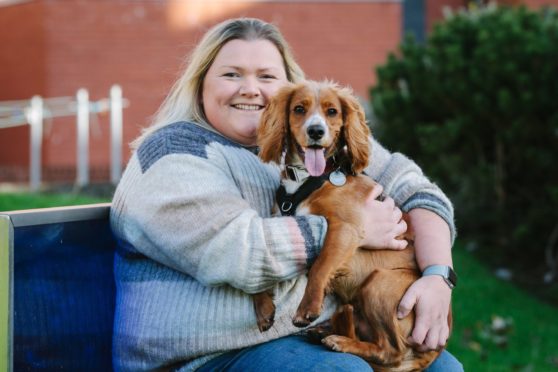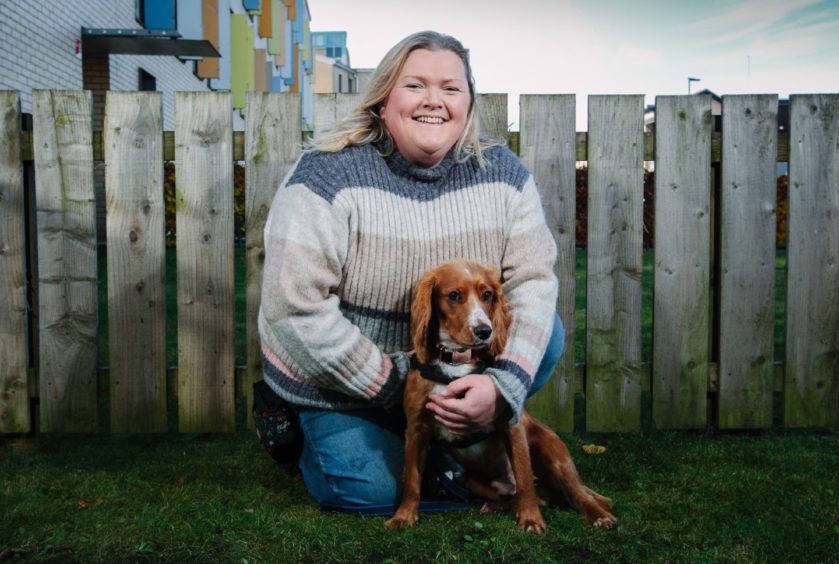
The stress of lockdown has taken its toll on Scotland’s four-legged friends as demand for help from pet behaviour specialists has never been higher.
Desperate dog owners have called on experts to help iron out problems including biting, barking and frustration at being on the lead.
Cats have also become stressed out at changes to their routine and owners have needed advice on them scratching furniture, overgrooming or not using their litter tray.
Some behaviourists and trainers report a doubling in demand for their expertise while welfare organisations are also braced for a surge in the number of pets being given up for rehoming, sold online or abandoned if their owners cannot manage them.
Jill O’Sullivan, who runs Busy Bee Dog Training in Glasgow, has already encountered owners so upset at their puppy’s behaviour that they are on the verge of giving them up.
She said: “The problem I see is that people’s motivation for getting a dog has changed and the type of dogs they’re choosing doesn’t necessarily fit with that.
“I’m seeing lots of people who have picked dogs who are good companions for children, who look cute and are Instagrammable, and instead what they’re getting are these very intelligent dogs who may have been bred a bit thoughtlessly and are now biting children, really destructive and difficult to be around.
“People are not necessarily prepared for how much work and effort they need. I’ve also seen a big increase in the number of dogs who are anxious about people out on walks, so barking, showing fearful behaviour or their recall is not as good.”
The price of puppies soared during lockdown as people spent more time at home and decided to get a pet, sometimes as a first-time owner.
Only around 25% consult a professional for help with training their puppy, with the remainder either seeking no advice or finding it from often ill-informed sources online. Lockdown saved puppies from getting overwhelmed by too much contact with people and other dogs, but many were not yet accustomed to being handled by strangers.
Owners who introduced time away from their dog should avoid separation problems if they are returning to working outside the home. But adult dogs have suffered more frustration at being on the lead, and new aggression between dogs in the same household has increased as they vied for their owner’s attention.
Rona Dougall: Am I barking up the wrong tree wanting a new furry friend? No, and I’m not alone
Dogs of all ages have also struggled with problems associated with too much interaction with their families, impacting the amount of rest they are getting. Lack of sleep and craving attention can also trigger biting or problem barking, particularly among puppies.
Accredited behaviourist Carrie Harrold, who runs Callimuir Canines in Aberdeen, said: “I’ve been queued out the door with adolescent and adult dogs with frustration. We’re getting behaviours like barking, lunging and pulling on the lead because these dogs are not coping with the change in not being able to speak to everybody.
“Another very common email I’ll get is complaining about excessive or aggressive biting in puppies.
“Usually it’s down to not meeting the puppy’s needs. It’s not getting enough sleep or sometimes there’s just too much going on in the household or we might be responding to biting in the wrong way by squealing or waving our arms around.”
Behavioural problems are also not exclusive to dogs. Cats are struggling, too. Kim Houston, a certified behaviourist who runs CAT-astrophes in South Ayrshire, said many cats have enjoyed getting extra fuss and treats while others have become stressed and anxious.
She said: “I have received countless calls from owners during lockdown who have noticed marked changes, such as toileting outside the litter tray, scratching furniture and overgrooming.”
I’ve trained my pooch to be a real smarty-pup
Kirsty Munro picked up her cocker spaniel puppy Logan on the day Boris Johnson announced lockdown in March.
Logan is now nine months old and Kirsty had to adapt her plans for his training due to Covid-19 restrictions. All puppy training classes she had pre-booked were cancelled so she trained him to sit, stay and come to her call in her Glasgow flat. She introduced toilet training in a secluded section of garden, and much of his early socialisation was with neighbours’ dogs.
Kirsty, a developer at a health insurance firm, said: “That was one of the things I thought he might have missed out on but he has ended up getting other pals to play with in the local area.”
Awkwardly, Logan is wary of people wearing face masks as his vet had worn PPE when giving him his vaccinations.
Kirsty added: “He’s a very smart dog and has a lot of energy. Having a lockdown puppy was challenging but very, very rewarding.”

Enjoy the convenience of having The Sunday Post delivered as a digital ePaper straight to your smartphone, tablet or computer.
Subscribe for only £5.49 a month and enjoy all the benefits of the printed paper as a digital replica.
Subscribe © Andrew Cawley
© Andrew Cawley © Andrew Cawley
© Andrew Cawley